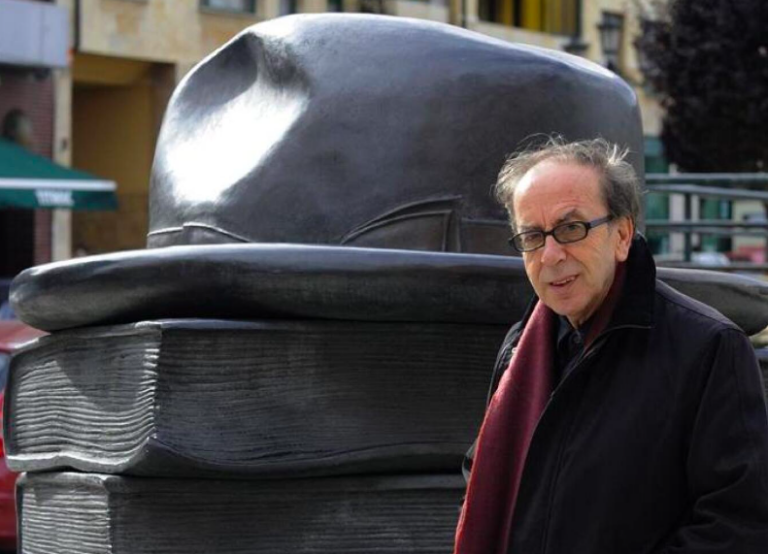“The writer is a natural enemy of the dictatorship,” said Ismail Kadare, Albania’s most renowned author, who passed away today at 88. Kadare lived by this mantra, using his works to fiercely critique not only the communist regime of Enver Hoxha but all forms of totalitarianism worldwide.
The Booker Prize-winning author believed that the traits of tyranny are universal, stemming from common human errors. “If we start looking for similarity between peoples, we would find it in their mistakes,” he once remarked. Kadare’s works—novels, short stories, essays, plays, and poems—aimed to expose and counter these tyrannical attitudes, even under Albania’s oppressive communist regime, which he described as “a communist hell that is suffocating and hostile to literature.” Writing gave him the strength to resist: “Literature gave me everything I have today, it was the meaning of my life, it gave me the courage to resist, the happiness, the hope to overcome everything,” he said in a recent interview.
Kadare believed that writers are born, not made. He discovered his passion for writing as a child, inspired by Shakespeare’s “Macbeth” from his family library. After studying at the Faculty of Philosophy at the University of Tirana, he attended the Gorky Institute of Literature in Moscow. However, political tensions forced him to return to Albania when Hoxha severed ties with Khrushchev’s USSR.
His writing career began in earnest upon his return to Albania with the prose piece “A City Without Advertisements,” followed by “The General of the Dead Army,” which cemented his reputation. His novels often blend realism with fantasy, drawing on the harsh realities of Albania’s communist regime, the archaic aspects of Albanian society like the Kanun, and the Ottoman Empire’s oppressive legacy.
Among his translated works are “The Bridge of Three Arches,” “The Twilight of the Steppe Gods,” “The Chronicle of the Stone City,” “The Drums of Rain,” “The Concert,” “The Monster,” “The Pyramid,” “The General of the Dead Army,” “Who Brought Dorudin,” “Spiritus,” “Moonlight,” “The Eagle,” “The Church of Hagia Sophia and Other Stories,” “File O,” “Three Elegies for Kosovo,” “The Daughter of Agamemnon,” “The Heir,” “April Fool,” and “Aeschylus the Great Wrongdoer,” inspired by the ancient Greek tragedian.
Kadare was particularly drawn to Aeschylus, whose works were published in Albanian in 1985. “He is the father of tragedy, a great creator, and Prometheus, the opponent of tyranny, is perfect for the communism of our Albania,” Kadare explained. He also saw this as an opportunity to express his admiration for a Greek writer and a neighboring culture.
Regarding Greek-Albanian relations, Kadare noted, “Greece and Albania unfortunately do not get along as well as they should, despite being neighbors for 2,000 years. This has been the case for centuries, even under the Ottoman yoke. Now, both NATO members, the relationship remains fraught with tensions, despite official assurances. If the Greeks have any historical grievances against the Albanians, they should voice them.”
Kadare’s legacy is that of a fearless writer who used his craft to battle against oppression and injustice, leaving a profound impact on literature and on the fight for human rights.
Ask me anything
Explore related questions





